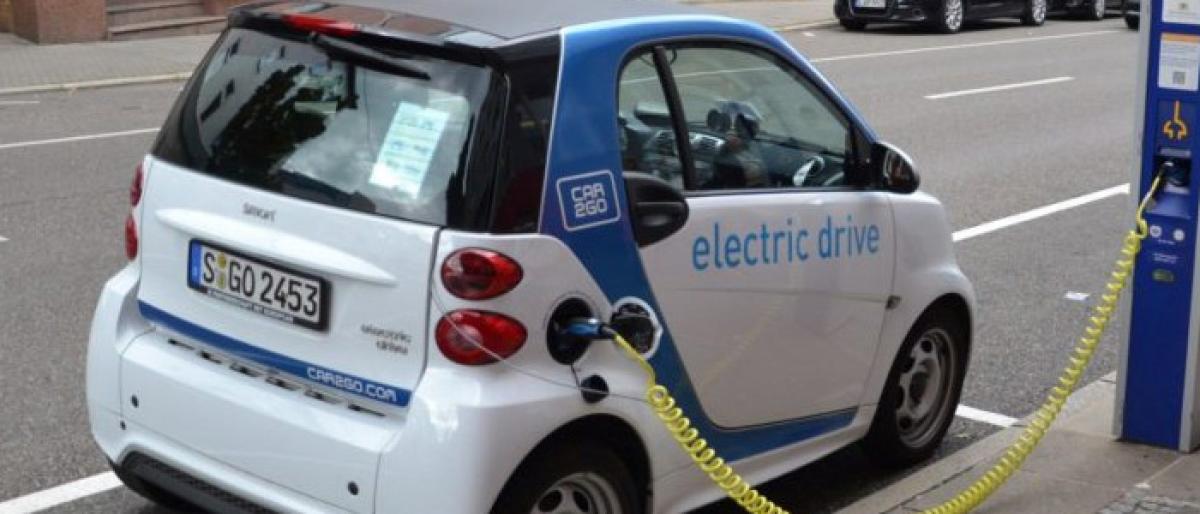Driving in the right direction

entre is all set to tighten fuel efficiency norms for vehicles to push automobile manufacturers to shift to electric vehicles. The shift to EVs has caught the imagination of policymakers, but speed bumps in policy and corporate landscape remain, including a terrible lack of lithium-ion-battery manufacturing ecosystem and charging infrastructure.
Centre is all set to tighten fuel efficiency norms for vehicles to push automobile manufacturers to shift to electric vehicles. The shift to EVs has caught the imagination of policymakers, but speed bumps in policy and corporate landscape remain, including a terrible lack of lithium-ion-battery manufacturing ecosystem and charging infrastructure. Though space agency ISRO is doing its bit to fostering innovation, India must show China’s commitment if it has to achieve similar results.
A panel headed by road transport secretary has made this recommendation as a part of its 15-point strategy. Arguing for tighter targets, the report recommended that for approximate induction of three to five per cent EVs, as against total manufactured vehicles, the fuel efficiency norms have to be lower by 20 to 25 per cent over FY 2017-2018 data. This approach has to be adopted for cars, three wheeler and two-wheeler industry. The Transport Ministry has mandated fuel efficiency norms that require cars to be 30 per cent more fuel efficient by 2022, which will reduce the CO2 emission.
This is expected to help India meet the global CO2 emission norms, and likewise assist in reducing its carbon footprint. To push the supply of EVs and their components, the panel has recommended granting weighted tax deduction on the lines of deductions provided for investment in scientific research and development besides disincentivising imports by providing certain degree of protection to domestic manufacturing.
It is essential that India opts for the same as its cities pollution levels are alarming. As per a World Bank report, 14 of the most polluted cities out of 20 are in India. The shift to EVs could also ease concerns about economic and energy security and climate change.
Boosting EVs would also help the economy more directly by reducing India’s reliance on crude oil imports, which supply 82 per cent of its needs. The cost of imports is otherwise forecast to amount to $ 300 billion a year by 2030. However, high prices and a lack of public charging infrastructure are major barriers to a wider rollout. Lithium batteries which account for 60 per cent of the cost of a two-wheeler, need replacing every few years and are imported from China. But, here is a problem for India.
A significant increase in the proportion of electric vehicles on our roads would require massive government subsidies. This cannot be justified in a nation that struggles to provide basic amenities let alone universal healthcare and education.
Currently electric subcompact cars are almost twice as expensive as models with internal combustion engines. Pricey batteries needed to store power account for half of the cost of electric vehicles. To encourage sales the government will need to offer tax relief. The Society for Indian Automobile Manufacturers has called for the goods and services tax on electric vehicles to be slashed to 5 per cent from the present 43 per cent to 48 per cent and for buyers to be able to deduct 30 per cent of a vehicle’s price from their income tax. The government will have to balance the two - its conviction and public opinion over the incentives. Can it?

